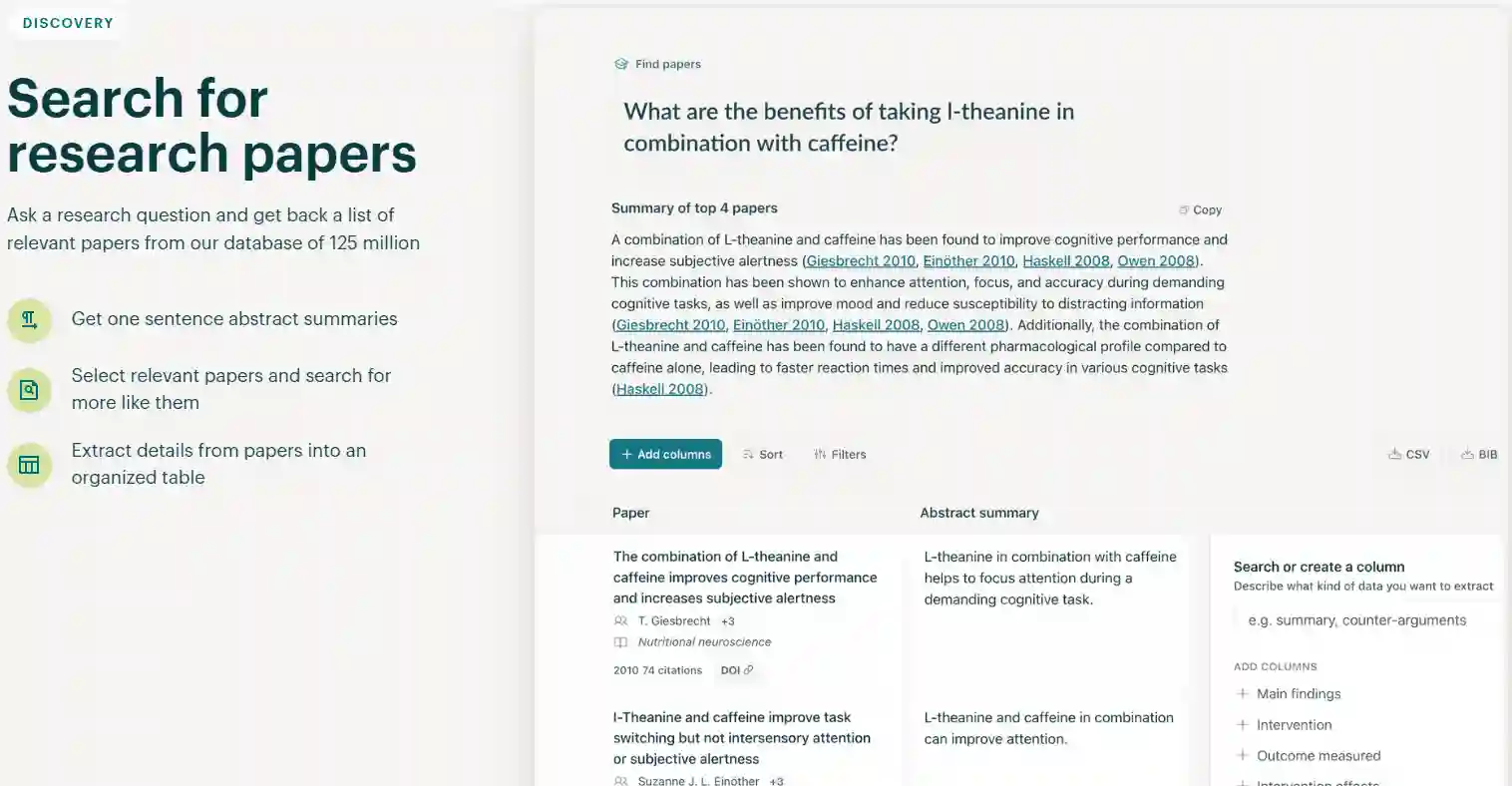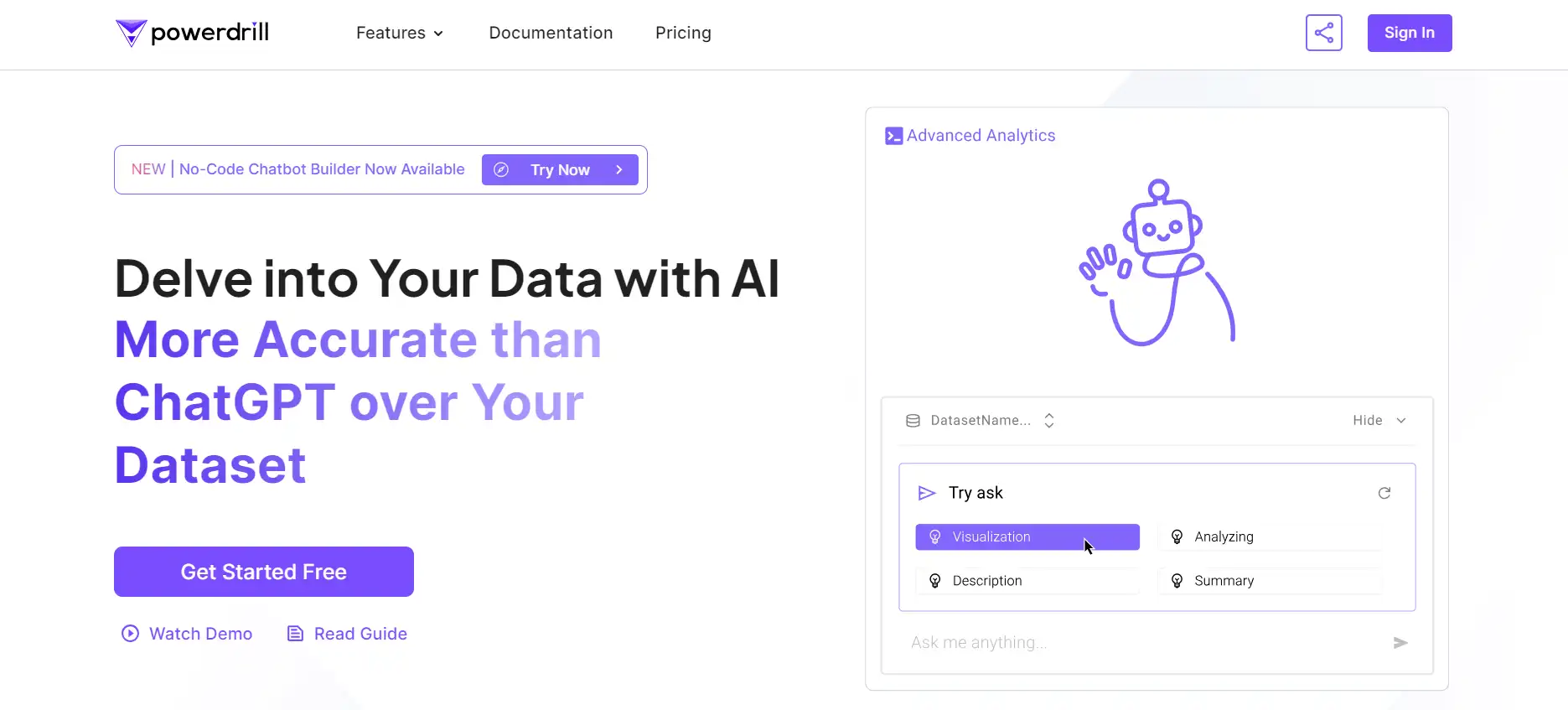Top AI Tools Every Researcher Should Know
In today’s academic world, the role of artificial intelligence (AI) in enhancing and streamlining the process of writing academic and scientific papers cannot be overstated. As technology advances, AI tools are increasingly integrated into various facets of research, offering unprecedented support in managing, synthesizing, and generating scholarly content. From automating tedious literature reviews to providing sophisticated data analysis, AI is revolutionizing how researchers approach writing scientific papers with AI. This transformative technology not only accelerates the research process but also improves the accuracy and depth of the resulting studies, allowing scholars to tackle complex scientific questions with enhanced precision.
The importance of AI tools in academic research extends beyond simple task automation. These technologies are crucial for enhancing the quality and efficiency of research outputs. By leveraging the best free AI tools for scientific research, scholars can access vast databases of information, analyze data at incredible speeds, and maintain a higher standard of research integrity with tools designed to detect and correct errors automatically. AI’s ability to parse through extensive datasets and extract relevant findings helps researchers stay at the cutting edge of their fields, ensuring that academic papers reflect the latest knowledge and methodologies. As AI continues to evolve, its integration into academic settings promises to foster a new era of innovation and efficiency in scientific inquiry.
Table of Contents
Understanding AI Tools for Academic Writing
Artificial Intelligence (AI) tools are software solutions designed to automate, enhance, and facilitate various tasks using intelligent algorithms that can analyze, learn, and perform actions based on data input. In the context of academic and scientific writing, these tools are specifically tailored to assist researchers and students in handling the extensive demands of writing high-quality, accurate, and comprehensive research papers and theses.
Benefits of Integrating AI in Scientific Research and Thesis Writing:
- Enhanced Efficiency: AI tools automate time-consuming tasks such as data collection, literature review and the writing, significantly speeding up the research and writing process.
- Improved Accuracy: By minimizing human error, AI helps maintain high standards of accuracy in data analysis and citation, crucial for academic integrity.
- Advanced Analysis Capabilities: AI can process and analyze large datasets faster and more effectively than traditional methods, allowing for deeper insights.
- Customization and Flexibility: Many AI tools offer customization options that adapt to specific research needs, enhancing their utility across different academic disciplines.
- Accessibility of Information: AI-powered search tools provide quick access to a vast array of academic literature, streamlining the research phase.
- Consistency in Writing: AI can help maintain a consistent tone and style throughout a document, which is particularly useful in lengthy writings like theses.
By leveraging these AI tools, academic researchers and students can significantly enhance the quality of their work, making the daunting task of writing scientific papers and academic theses more manageable and less time-consuming.
Best Free AI Research Tools and Assistants
Elicit

Overview and Key Features:
Elicit is an AI-powered research assistant designed to streamline the academic research process by simplifying complex technical language and deepening the understanding of scholarly materials. It offers a suite of features including literature review automation, summarization of academic texts, and question-answering capabilities that are particularly valuable in handling vast amounts of research data efficiently.
Practical Applications:
Elicit aids significantly in literature reviews and the explanation of complex concepts by pulling relevant data from a comprehensive database of scientific papers. Users can input specific research questions, and Elicit generates responses with pertinent citations, making it an invaluable tool for students and researchers drafting detailed sections of scientific papers or academic theses.
SciSpace
Introduction and Functionalities:
Similar to Elicit, SciSpace serves as a robust AI research assistant that enhances the academic writing and research experience. It focuses on simplifying the consumption and understanding of scientific literature, providing features like literature review, detailed summarizations, and responsive question answering, all designed to support rigorous academic research.
Benefits for Academic and Scientific Research:
Scispace offers considerable advantages by automating the initial stages of research, such as the aggregation and summarization of relevant literature. This not only saves time but also ensures that researchers are well-informed of the latest studies and data, facilitating a higher quality of research output that is well-cited and comprehensive.
Perplexity AI
Detailed Exploration of Capabilities:
Perplexity AI stands out as a powerful tool for academic and scientific writing, offering deep search capabilities and precise information retrieval. It excels in generating quick answers to research questions from the web, backed by citations from scientific publications and journals, which is crucial for validating research findings and constructing a solid literature base.
Evaluation of Features:
Perplexity’s literature review and citation tools are particularly beneficial for writing scientific papers and theses. The AI allows users to input detailed research questions, to which it responds with well-sourced and relevant citations. This feature not only aids in the creation of a robust literature review section but also supports the factual accuracy and credibility of the entire research paper or thesis.
Each of these AI tools offers unique capabilities that enhance the research and writing processes by providing structured, citation-backed answers to complex research questions. This not only improves the efficiency of writing academic papers but also ensures that they meet high standards of scholarly rigor and integrity.
Advanced AI for Literature Search and Management
PowerDrill AI

Explanation of PowerDrill AI and Its Relevance to Academic Research:
PowerDrill AI represents a significant advancement in the realm of academic research tools, specifically designed to manage and leverage large volumes of literature data efficiently. This tool is pivotal for researchers who deal with extensive datasets and require a robust system to organize, access, and analyze this information swiftly. PowerDrill AI facilitates a deeper understanding of data by integrating AI-driven analyses that help in synthesizing information from various sources, thus enhancing the research quality and depth.
Features:
One of the standout features of PowerDrill AI is its capability to create AI-powered knowledge bases without the need for coding skills, making it accessible to a wider range of researchers, including those who may not have technical programming expertise. It offers practical tools for dataset sharing, which is essential in collaborative research environments, allowing teams to work more cohesively and efficiently. Additionally, PowerDrill AI supports integration with the OpenAI ecosystem, providing a seamless experience for those already utilizing other AI tools and services. This integration not only improves the fluidity of research tasks but also ensures that outputs are both accurate and up-to-date, catering to the dynamic needs of academic writing and scientific research.
PowerDrill AI’s functionalities are particularly beneficial for researchers engaged in writing scientific papers or academic theses, as it streamlines the literature management process and ensures that all data used is handled efficiently and effectively. By simplifying the interaction between vast datasets and the researcher, PowerDrill AI aids in producing well-informed, meticulously researched academic documents.
Utilizing AI for Writing Scientific Papers
Jenni AI

Description of Jenni AI’s Writing Assistance:
Jenni AI is a sophisticated tool designed to assist in the writing process, particularly for academic and scientific papers. This AI-powered writing assistant helps researchers by offering suggestions, corrections, and improvements to written content. Jenni AI operates by understanding the context and content of the research, providing relevant advice to enhance clarity, coherence, and overall quality of the writing.
How Jenni AI Can Improve Writing and Research Efficiency:

Jenni AI is an AI-powered academic writing tool that helps researchers and students write, edit, and cite with confidence . It offers features such as AI autocomplete, text generation, paraphrasing, rewriting, citation, and source-based generation. It supports various academic citation styles, including APA, MLA, IEEE, Chicago, and Harvard (Originality.ai). Additionally, Jenni AI can learn from its users and adapt to their writing style over time (rhet). It has helped write over 970 million words and can generate text in US or British English, Spanish, German, French, or Chinese .
ChatGPT and GPT-4
Using ChatGPT for Writing and Rewriting:
ChatGPT, including its advanced version GPT-4, can be utilized to aid in drafting, revising, and improving academic texts. Researchers can leverage this tool to generate initial drafts based on outline inputs, rewrite existing sections for greater clarity or different emphasis, and even simulate discussions to explore new ideas. Its ability to process and generate text based on natural language inputs makes it an ideal tool for both creating new content and refining existing pieces.
Leveraging GPT-4 for Summarizing Key Points:
GPT-4 can be particularly useful in summarizing complex documents and research findings. This capability allows researchers to quickly understand and communicate key points from extensive literature, facilitating an efficient review process and aiding in the synthesis of large amounts of data into concise, manageable summaries.
Creating Custom GPT Models for Personalized Academic Writing Assistance:
With the availability of tools like OpenAI’s platform, researchers can now create customized GPT models tailored to their specific needs. These personalized models can be trained on specific bodies of text or datasets, providing more relevant and context-aware suggestions. This customization enhances the AI’s utility, making it a more effective tool for specialized academic fields.
Practical Tips on Integrating GPT-4 in Academic Workflows:
Integrating GPT-4 into academic workflows involves several practical steps. It’s important to initially define clear objectives for what the AI needs to achieve—be it generating content, assisting with drafts, or providing summaries. Researchers should regularly update and train their AI models with new data to keep the tool sharp and relevant. Moreover, setting up a feedback loop where the AI’s outputs are reviewed and refined by the user can greatly enhance its effectiveness and accuracy over time.
Utilizing these AI tools in writing scientific papers can transform the research and writing process, making it more efficient and productive. Whether through writing assistance, content generation, or workflow integration, AI technologies like Jenni AI and ChatGPT are invaluable assets in the toolkit of modern researchers.
Practical Tips for Implementing AI Tools in Thesis Writing
Implementing AI tools effectively in the thesis writing process requires strategic planning and thoughtful integration. Here are some practical steps and best practices to ensure you maximize the benefits of AI tools in your academic writing endeavors:
Steps to Integrate AI Tools into the Thesis Writing Process:
- Identify the Right Tools: Begin by identifying AI tools that specifically address your needs, whether it’s for data analysis, literature review, writing assistance, or citation management. Tools like Elicit for literature reviews or Jenni AI for writing can be immensely helpful.
- Understand Tool Capabilities: Spend time learning how these tools work and what they are capable of doing. Understanding their strengths and limitations will help you use them more effectively.
- Integrate Gradually: Start with small, manageable tasks to integrate AI tools into your workflow. For instance, use AI to generate outlines or drafts and gradually scale up their use as you become more comfortable with their functionalities.
- Consistent Use: Regular use of the AI tools throughout your thesis writing process ensures that you get consistent support, maintaining a coherent flow and style in your writing.
- Feedback and Adaptation: Continuously gather feedback on the AI’s performance and adapt its use based on your specific academic requirements. Fine-tuning the tool to better suit your needs can enhance its effectiveness.
Best Practices for Maximizing the Benefit of AI Tools in Academic Writing:
- Complement Your Skills, Don’t Replace Them: Use AI tools to complement your expertise and skills, not replace them. Leverage AI for time-consuming tasks while focusing your efforts on critical thinking and analysis.
- Maintain Academic Integrity: Ensure that your use of AI tools adheres to academic integrity guidelines. Always double-check AI-generated content for accuracy and originality to avoid plagiarism.
- Keep Up-to-Date: AI tools are continually evolving. Keep yourself updated with the latest versions and features to ensure you are using the most effective technology available.
- Cross-Verify Information: Always cross-verify the information and data provided by AI tools with other reliable sources, especially when it comes to critical research components.
- Use AI for Revisions: Utilize AI tools to revise and refine your drafts. AI can help identify areas of improvement that might be overlooked during manual reviews.
By following these steps and best practices, you can effectively integrate AI tools into your thesis writing process, enhancing both the efficiency and quality of your academic work.
Conclusion
Throughout this article, we have explored a variety of AI tools that significantly contribute to the efficacy and quality of writing scientific and academic papers. From Elicit and Scispace, which simplify complex concepts and enhance literature reviews, to Perplexity AI and PowerDrill AI that offer advanced search capabilities and data management, each tool presents unique advantages. Jenni AI and GPT-4 have also been highlighted for their ability to assist in creating and refining content, making the research and writing processes more efficient.
With the proper implementation, these tools can transform the traditional challenges of academic writing into a more manageable, efficient, and even enjoyable process. They not only save time but also enhance the quality of work, allowing students and researchers to focus on the creative and analytical aspects of their studies.
FAQs
AI tools streamline the literature management process by automating the collection, organization, and review of research materials. They can summarize research findings, highlight key points, and provide quick access to a wide range of sources, making it easier to build a comprehensive literature review.
While AI tools offer considerable advantages, they are not without limitations. Issues such as over-reliance on technology, potential biases in AI algorithms, and the nuances of interpretative writing that AI may not fully grasp are common concerns. Additionally, AI-generated content must always be critically evaluated by the user to ensure accuracy and authenticity.
AI tools can generally be trusted to provide accurate citations and assist with research, especially those that are regularly updated and backed by credible databases. However, it is crucial for users to verify AI-suggested citations and data against original sources to prevent inaccuracies and maintain scholarly integrity.
Choosing the right AI tool involves assessing your specific research requirements, including the nature of your thesis, the complexity of your topic, and your personal workflow preferences. Look for tools that offer features aligning with these needs, and consider starting with trials or demos to evaluate their effectiveness before fully integrating them into your work.
Yes, there are several great free AI tools available that can assist students in their academic writing and research. The best free AI Tools for academic writing and scientific research are covered in this article. Tools like the basic versions of ChatGPT, Elicit, Scispace 1and other open-source platforms provide support with various tasks such as drafting, summarizing, and citation management without any cost.



